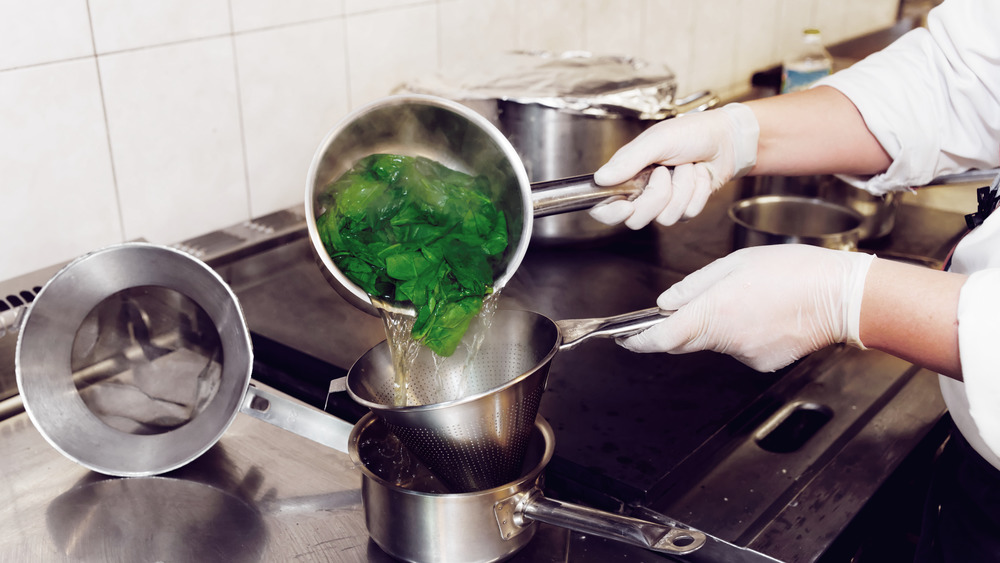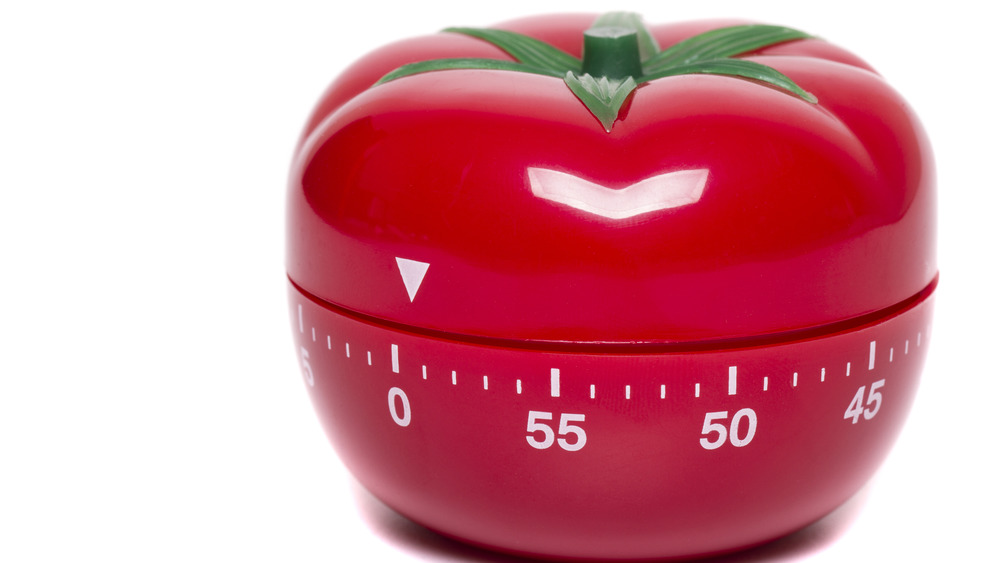The Real Reason You Should Blanch Some Vegetables
If those vegetables you bought just the other day are already turning brown, there's good reason. And by "good," what we mean is it's one of the reasons eating those veggies is so good for your health. It comes down to the presence of certain enzymes, namely polyphenol oxidase and peroxidase, according to a 2016 research paper published in the Encyclopedia of Food and Health. In addition to causing your veggies to turn brown before you want them to, these enzymes are also responsible for the antioxidant action in vegetables that can help prevent chronic illnesses and conditions associated with oxidative stress, including cardiovascular disease, type 2 diabetes, and various cancers (via 2010 research paper published in the journal, Nature).
While your best option is to use your veggies as soon as possible, sometimes frequent trips to the grocery store are impractical. Freezing vegetables can slow enzyme activity, but it can't halt it (via U.S. Department of Agriculture) and may change the flavor and texture of some vegetables (via University of Minnesota). The best way to halt browning while still maintaining the nutrients, flavor, and texture of many vegetables is to blanch them before freezing.
Blanching vegetables refers to partially cooking them ever-so-briefly in boiling water (this process is also known as parboiling or parcooking) before quickly plunging them into ice-cold water to stop the cooking process, according to the Food Network. Blanching heats the vegetables just enough to halt browning without actually cooking them through.
How you go about blanching your vegetables matters a lot
Virtually all vegetables can benefit from blanching before freezing, according to the University of Georgia's National Center for Home Food Preservation, which offers a handy guide to precisely how long to blanch more than 30 common vegetables. And precision is of the utmost importance because not enough time spent in the boiling water may enhance the browning you're hoping to avoid, while too much may destroy the taste and texture of your vegetables while also causing their nutrients to be lost.
For most vegetables, the gold standard for blanching starts with vigorously boiling water. However, some vegetables are amenable to steaming rather than boiling, including broccoli, pumpkin, sweet potatoes, and winter squash (in which case you place the vegetables into the steamer after the water is already boiling, then place a lid on the pot and start your timer). Microwaving is not recommended, however, because it may not inactivate the enzymes effectively. In addition, microwaving may literally cause your vegetables to "blanch" (i.e., lose their color and flavor, according to a study published in the Journal of Food Quality).
Pro-tip: As soon as your blanched veggies are cool, drain them thoroughly before freezing to assure the highest quality taste, texture, and color.

